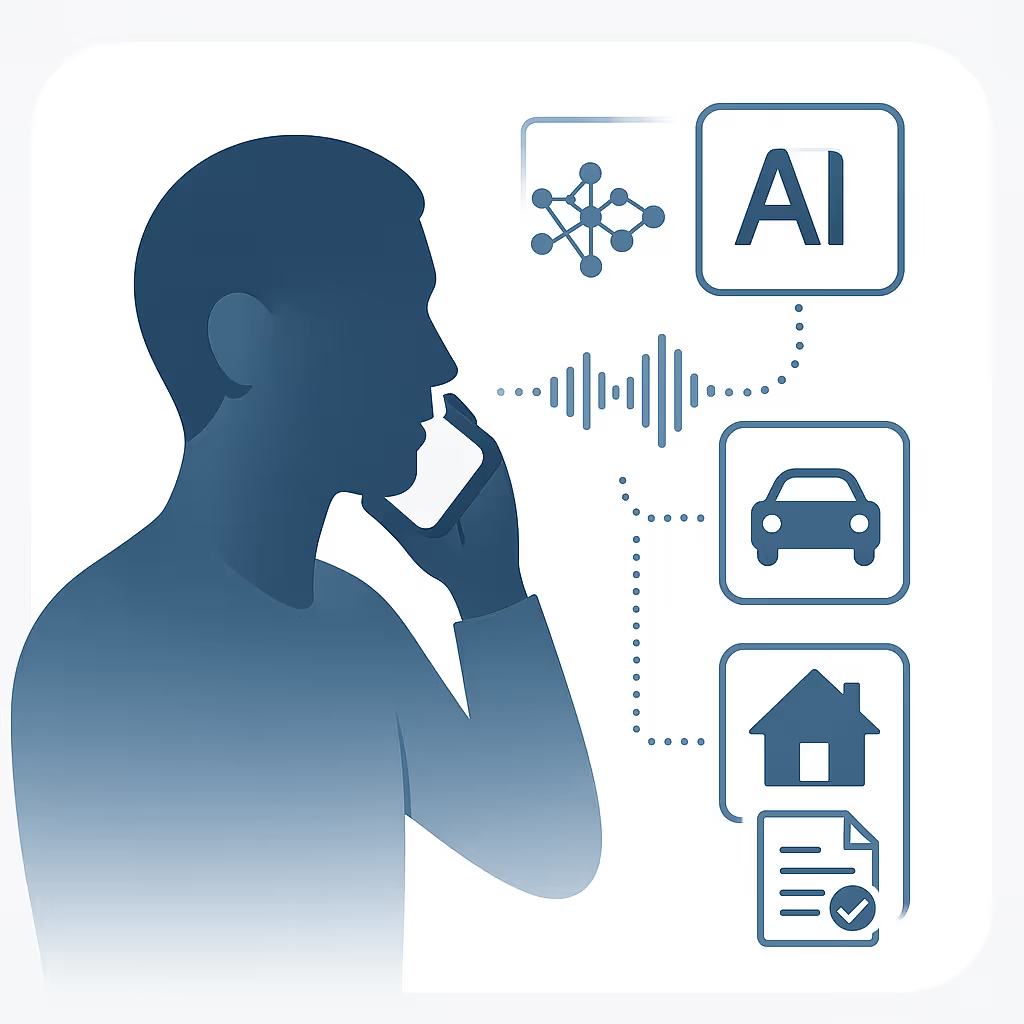Why AI Receptionists Are a 2025 Essential
In a time when customers expect instant, always-available support, missed calls equal lost business. Traditional phone trees frustrate callers. Overwhelmed staff can’t keep up.
AI receptionists solve both problems. They provide:
- Immediate call response, day or night
- Multi-call handling with zero hold times
- Personalized, brand-consistent service
For small and midsize businesses, the ROI is undeniable: cost savings, recovered leads, and improved customer satisfaction in under 15 minutes of setup.
Business Benefits of AI Receptionists
AI receptionists deliver layered, tangible value:
- Increased lead capture: Always-on availability ensures calls never go unanswered
- Operational efficiency: Handles 10x the call volume of a human without burnout
- Cost reduction: Replaces or augments $40K+ receptionist roles with plans starting under $75/month
- Customer retention: Personalized service, zero wait time, and proactive follow-up reduce churn
- Brand elevation: A seamless, consistent caller experience signals professionalism
Capabilities That Define Modern AI Receptionists
Today’s systems go far beyond basic automation. Core components include:
- Natural Language Processing (NLP): Enables two-way conversations using real human language
- Intent Recognition: Understands caller goals and responds appropriately
- Smart Call Routing: Forwards complex calls to the right human rep with full context
- Appointment Management: Syncs with calendars like Google or Outlook to book and confirm
- Spam Filtering: Automatically blocks robocalls and irrelevant dials
- SMS and Email Follow-Up: Confirms bookings, sends reminders, and nurtures leads
- Voice Customization: From branded greetings to voice cloning for a familiar tone
Voice AI and the Rise of Real-Time Intelligence
AI virtual receptionists are powered by voice AI - tech that processes live speech and responds instantly. Key voice-driven features include:
- Live call transcription for accurate records
- Real-time conversation handling, even with complex queries
- Sentiment awareness to detect urgency or frustration
- Auto-generated summaries and lead capture into CRMs
This voice-first architecture not only enhances customer experience - it drives sales and operational efficiency.
How to Implement an AI Receptionist
Getting started is faster than most SaaS tools. Best practice steps:
- Forward your business line or integrate via SIP or VoIP
- Upload your knowledge base (services, hours, FAQs)
- Connect calendars and CRM to sync availability and customer records
- Define call flows, escalation triggers, and fallback logic
- Test and optimize with real call scenarios
With tools like the Fluents API, deeper customizations are possible without heavy dev work.
Key Use Cases Across Industries
AI receptionists are deployed across sectors where time, trust, and efficiency matter:
- Healthcare: HIPAA-compliant scheduling, triage, and insurance processing
- Legal: Client intake, emergency routing, and appointment confirmation
- Field Services: Real-time booking, service coordination, and follow-ups
- Retail & E-commerce: Order inquiries, returns, and loyalty program support
- Real Estate: Buyer/seller qualification, showing management, and lead nurturing
Explore connected tools like Sales Assistant, Outbound Dialer, or Web Agent Widget to build a full voice-to-sale stack.
Performance Tracking and Optimization
AI receptionists offer a major upgrade over legacy systems:
- Live dashboards for call volume, resolution rate, and bookings
- Transcripts for review and QA
- Conversion tagging to track lead quality and sales attribution
- Export tools that integrate with CRMs, email platforms, and BI dashboards
Security and Compliance
AI reception systems are built to protect customer and business data:
- End-to-end encryption (AES-256, TLS/SSL)
- HIPAA and GDPR compliance features
- Role-based access, audit trails, and data retention policies
Trust is built in - from healthcare to financial services.
AI Reception Trends to Watch
What’s shaping the future of virtual reception?
- Sentiment analysis for smarter call triage
- Voice cloning for branded familiarity
- Proactive outreach via voice and SMS triggers
- Industry-trained models for deeper sector fluency
- Omnichannel coordination across voice, chat, email, and SMS
These advancements ensure AI receptionists become strategic growth assets - not just support tools.
Conclusion: Why This Matters Now
AI virtual receptionists represent a clear evolution in customer engagement. They work non-stop, respond instantly, and scale effortlessly.
Businesses that adopt them win on responsiveness, efficiency, and customer satisfaction - all while lowering overhead.
In a world where first impressions happen on the phone, your receptionist is your brand. With AI, it’s always on, always sharp, and always closing.
From 10 calls a day to 85,000, Fluents scales with you. Automate globally, integrate deeply, and never worry about your call infrastructure again.

Stay Connected
Check out our latest updates, customer stories, and resources to keep leveling up with Fluents.
Essential FAQs on AI Receptionists in 2025
Explore the ways AI receptionists enhance customer interactions, optimize appointment scheduling, and boost overall service quality in modern businesses.
Implementing AI receptionists by 2025 offers small and midsize businesses transformative benefits, addressing the need for instant, always-available customer support. AI receptionists ensure no call goes unanswered, providing immediate responses and handling multiple calls simultaneously without hold times, which traditional phone systems struggle to achieve. They deliver personalized, brand-consistent service, enhancing customer satisfaction and loyalty.
- Increased lead capture: AI receptionists' 24/7 availability ensures every call is answered, maximizing potential leads.
- Operational efficiency: Capable of handling ten times the call volume of a human receptionist, AI systems prevent staff burnout and improve productivity.
- Cost reduction: AI receptionists can replace or augment traditional roles, offering plans starting under $75/month, significantly reducing overhead costs.
- Customer retention: With zero wait times and proactive follow-up, AI receptionists enhance customer experience, reducing churn.
By adopting AI receptionists, businesses can achieve substantial cost savings, recover lost leads, and improve customer satisfaction, all within a quick setup time of under 15 minutes. This strategic move not only elevates brand professionalism but also positions businesses to thrive in a competitive market by ensuring seamless, efficient, and responsive customer interactions.
AI receptionists enhance customer satisfaction and operational efficiency by providing immediate, 24/7 call response, eliminating hold times, and offering personalized service that aligns with brand values. By 2025, they are expected to handle complex queries with real-time intelligence, ensuring that no call goes unanswered and every customer interaction is optimized for satisfaction.
- Immediate call response and multi-call handling
- Personalized service with zero wait time
- Cost-effective solution replacing traditional roles
The integration of AI receptionists leads to increased lead capture, reduced operational costs, and improved customer retention, making them an essential tool for businesses aiming to enhance their customer engagement and operational efficiency by 2025.
By 2025, modern AI receptionists will offer advanced capabilities that significantly enhance business communication and customer interaction. These systems will leverage cutting-edge technologies to provide seamless, efficient, and personalized customer experiences.
- Natural Language Processing (NLP) for human-like conversations
- Real-time sentiment analysis to gauge customer emotions
- Smart call routing with full context transfer to human agents
- Omnichannel coordination across voice, chat, email, and SMS
These advancements ensure that businesses not only improve customer satisfaction and retention but also achieve operational efficiency and cost savings, making AI receptionists an essential asset for growth and competitive advantage.




